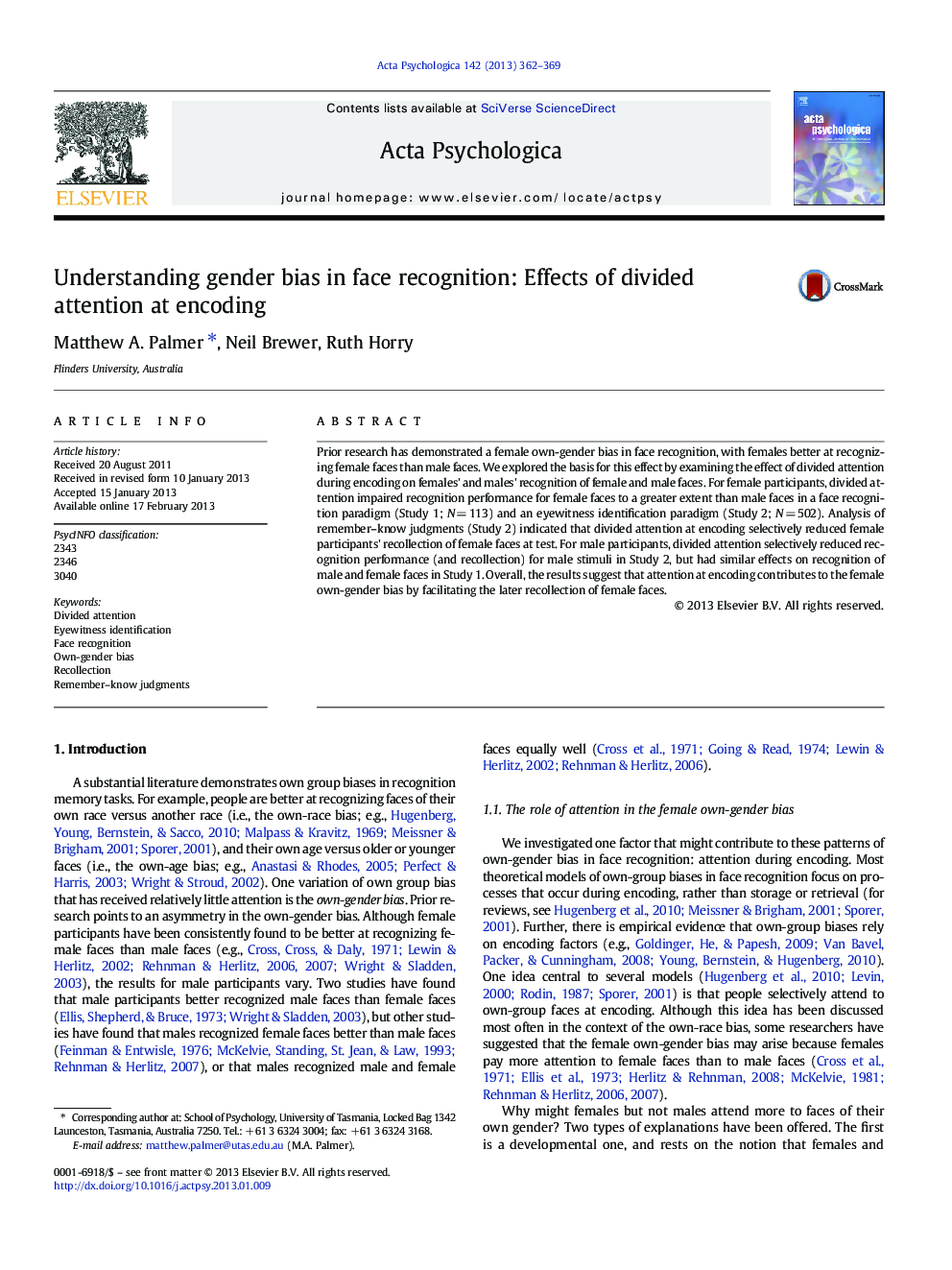| Article ID | Journal | Published Year | Pages | File Type |
|---|---|---|---|---|
| 919820 | Acta Psychologica | 2013 | 8 Pages |
Prior research has demonstrated a female own-gender bias in face recognition, with females better at recognizing female faces than male faces. We explored the basis for this effect by examining the effect of divided attention during encoding on females' and males' recognition of female and male faces. For female participants, divided attention impaired recognition performance for female faces to a greater extent than male faces in a face recognition paradigm (Study 1; N = 113) and an eyewitness identification paradigm (Study 2; N = 502). Analysis of remember–know judgments (Study 2) indicated that divided attention at encoding selectively reduced female participants' recollection of female faces at test. For male participants, divided attention selectively reduced recognition performance (and recollection) for male stimuli in Study 2, but had similar effects on recognition of male and female faces in Study 1. Overall, the results suggest that attention at encoding contributes to the female own-gender bias by facilitating the later recollection of female faces.
► Prior research has demonstrated a female own-gender bias in face recognition. ► We investigated the role of attention at encoding in the own-gender bias. ► Divided attention impaired females' recognition of female faces more than male faces. ► The results suggest that attention facilitates females' recollection of female faces.
